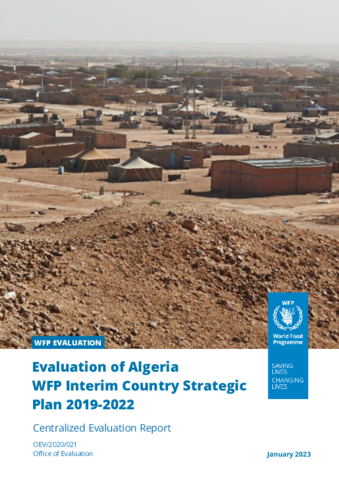
The evaluation was commissioned by the independent Office of Evaluation to provide evaluative evidence for accountability and learning to inform the design of the next WFP programme in Algeria. It covers WFP activities implemented from 2018 to June 2021 and also takes into consideration the preceding transitional interim country strategic plan.
The evaluation was conducted between January 2021 and March 2022. It started in 2021 in line with the planned end date in June 2022, however, the current ICSP has since then been extended to end-2024.
The evaluation concluded that:
- Humanitarian entities (United Nations entities and non-governmental organizations) are mandated to provide life-saving assistance in a context that still lacks an internationally agreed long-term solution.
- WFP operations have demonstrated numerous strengths, including strong partnerships and the introduction of innovative approaches.
- While WFP made considerable efforts to assess the needs of refugees it has sidestepped targeting refugees based on food security levels.
- The gender dynamics within the refugee camps are currently insufficiently understood. WFP needs to ascertain the actual extent of gender equity in the camps and to strengthen its understanding of gender dynamics in order to implement gender-transformative programmes.
- The ICSP has not succeeded in attracting stable funding and this has affected its implementation. Nonetheless, In the face of funding challenges WFP has used its limited resources carefully.



